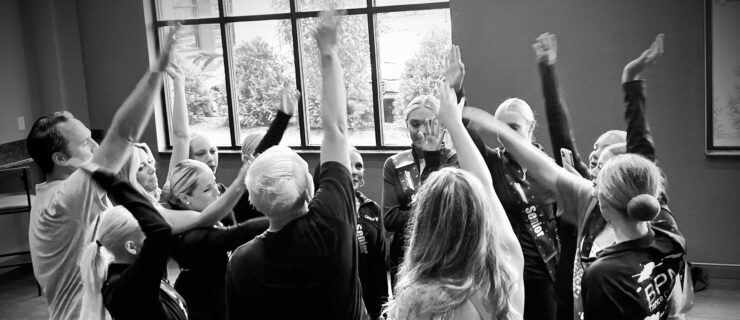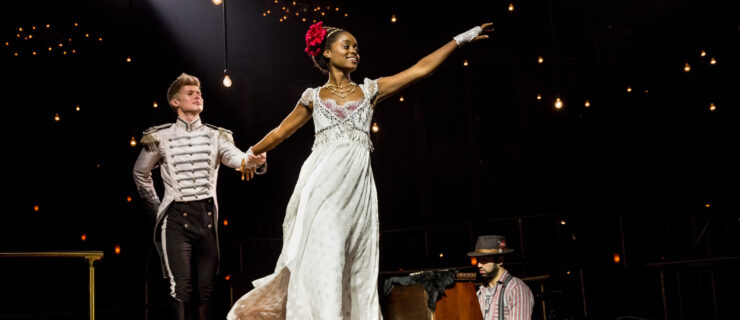What Can You Do to Control Pre-Performance Nightmares?
Before every performance, Charlotte Ballet dancer Raven Barkley follows a preshow ritual to help manage her nerves: She stretches, reviews choreography, meditates and gets in the zone.
However, preshow nerves aren’t always confined to waking hours. “I once had a dream that I was going to forget my choreography and lose where I was onstage,” she says. The nightmare ended up playing out during one of Barkley’s actual performances. “I blanked out,” she says. “I was so upset. I was telling myself, ‘Don’t do it, don’t do it.’ ”
Though it’s rare for these kinds of nightmares to actually come true in real performances, having mishaps play out in your dreams is common among dancers. According to dream expert Delphi Ellis, this is called “rehearsal theory.” “This might be where your brain is like, ‘What we don’t want to happen is this. So let’s dream that it happens, and prepare for what we might do,’ ” she says.
Why We Dream About Onstage Mistakes
Ellis says that dreams are like friends, and are usually trying to tell us something. “You can either take what they say with a pinch of salt, or you can listen intently, observe and take on board the advice,” she explains. “Your brain is always trying to help you; sometimes it just doesn’t know any other way.”
Dancers may also experience troubling dreams due to other issues going on in their lives. “It’s important to remember that a person isn’t just the job that they do,” Ellis says. “The dream might just create the framework of what they know best.”
Many aspects of sleep and the brain remain a mystery to scientists. But it is well known that people suffering from anxiety tend to have poor sleep and more anxious dreams, says hypnotherapist Christine Deschemin. “This translates into a more anxious day,” she says, which can create a cycle where anxiety and nightmares can intensify and feed off one another.
Take Back Control
While dancers can’t dictate their dreams, they can manage the effects of them. Sports psychologist Dr. Patrick Cohn explains that the “avoidance mindset” is a counterproductive way dancers try to prevent mistakes they’re worried about. “When you’re thinking ‘Don’t mess up,’ then most likely you are going to mess up.”
Instead of trying to avoid mistakes presented in your dreams, Cohn suggests that dancers train their minds to focus on a more positive mindset. One way to do this is to focus on exactly what you want to do in the performance (rather than what you want to avoid), such as maintaining strong balance rather than thinking about the fall from your dream. Another mental exercise is “rationalization,” where dancers can ask themselves if the fears from their dreams are based in reality.
The next step is to replace those fears with “proactive confidence,” which means focusing on your strengths instead of letting your insecurities get the better of you. It can also help to establish a pre-performance mental routine to get into the right headspace.
4 Ways to Manage Your Dream Anxiety
Keep a dream diary to identify patterns that occur before performances so you can recognize and understand underlying feelings.
Follow a regular sleep schedule
to avoid nightmares caused by lack of sleep.
Give yourself an hour
before bed
to wind down so that stress from the day doesn’t creep into dreams.
Listen to self-hypnosis and mindfulness tracks
to divert your thoughts away from fears and insecurities.




